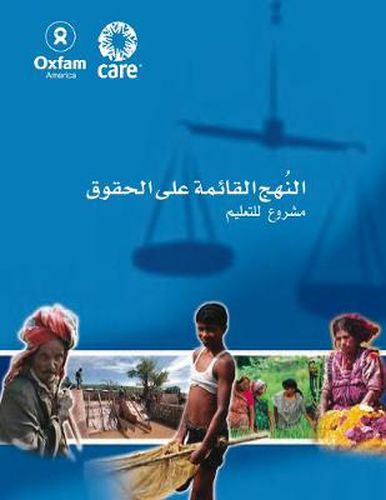Readings Newsletter
Become a Readings Member to make your shopping experience even easier.
Sign in or sign up for free!
You’re not far away from qualifying for FREE standard shipping within Australia
You’ve qualified for FREE standard shipping within Australia
The cart is loading…






Case studies that provide compelling conclusions about the differences between rights-based and more ‘traditional’ projects, and their relative impacts. The failure to respect, protect, or fulfil human rights is a fundamental and leading obstacle to economic development and social justice. Practically speaking, however, we are still struggling to understand what this major organisational shift means. The term;rights-based approaches (RBAs) has become so familiar that we tend to assume that it is well- understood and that it is a foregone conclusion that rights-based approaches offer more potential for sustainable impact. This report presents the findings of a collaborative Learning Project between CARE USA and Oxfam America, who compared RBA projects with non-RBA projects and identified ‘best practices’ and lessons that could be used to improve the application of rights-based approaches in programming. In doing this they confirmed that rights-based approaches strengthen development work. For field-based staff, partners, and other development practitioners working on the design and implementation of rights-based projects.
$9.00 standard shipping within Australia
FREE standard shipping within Australia for orders over $100.00
Express & International shipping calculated at checkout
Case studies that provide compelling conclusions about the differences between rights-based and more ‘traditional’ projects, and their relative impacts. The failure to respect, protect, or fulfil human rights is a fundamental and leading obstacle to economic development and social justice. Practically speaking, however, we are still struggling to understand what this major organisational shift means. The term;rights-based approaches (RBAs) has become so familiar that we tend to assume that it is well- understood and that it is a foregone conclusion that rights-based approaches offer more potential for sustainable impact. This report presents the findings of a collaborative Learning Project between CARE USA and Oxfam America, who compared RBA projects with non-RBA projects and identified ‘best practices’ and lessons that could be used to improve the application of rights-based approaches in programming. In doing this they confirmed that rights-based approaches strengthen development work. For field-based staff, partners, and other development practitioners working on the design and implementation of rights-based projects.